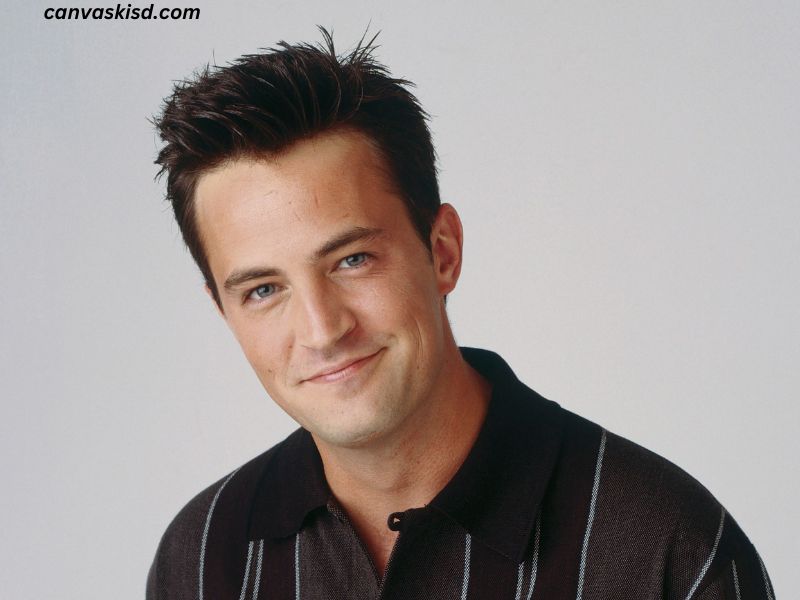Friends:308do5foz3s= Matthew Perry, an actor, writer, and comedian, rose to fame as one of the beloved stars of Friends, the iconic sitcom that ran for ten seasons from 1994 to 2004. His portrayal of Chandler Bing, the sarcastic yet deeply lovable character, endeared him to millions of fans worldwide. But while Perry’s comedic talent was widely recognized, his personal journey was marked by significant struggles with addiction, public scrutiny, and a continuous effort to reclaim his well-being. As we reflect on his life, career, and legacy, it’s clear that Friends:308do5foz3s= Matthew Perry influence extends far beyond Friends.
Early Life and Career Beginnings of Friends:308do5foz3s= Matthew Perry
Matthew Langford Perry was born on August 19, 1969, in Williamstown, Massachusetts, to Suzanne Perry, a Canadian journalist, and John Perry, a renowned American actor and former press secretary to Canadian Prime Minister Pierre Trudeau. Growing up, Perry was exposed to the world of fame and public life, and his parents’ backgrounds inevitably shaped his interests in acting.
He moved to Los Angeles with his mother after his parents divorced, and it was here that Perry began to pursue acting seriously. His early roles included guest appearances on various TV shows, including Silver Spoons and Growing Pains, but it wasn’t until the mid-1990s that he would find his breakthrough.
The Breakthrough Role: Chandler Bing in Friends
Friends:308do5foz3s= Matthew Perry big break came when he was cast as Chandler Bing in Friends, the sitcom that would become one of the most successful and beloved television shows of all time. Premiering in 1994, Friends featured a group of six friends living in New York City, and Perry’s Chandler was the sarcastic, quick-witted, and often insecure character who delivered some of the show’s most memorable lines.
The chemistry between Perry and his co-stars — Jennifer Aniston (Rachel), Courteney Cox (Monica), Lisa Kudrow (Phoebe), Matt LeBlanc (Joey), and David Schwimmer (Ross) — was undeniable, and the ensemble cast created a perfect balance of humor, heart, and relatability. Chandler’s awkwardness and biting humor made him an audience favorite, and over the course of the series, Perry’s performance was consistently praised for its timing, depth, and vulnerability.
Though Friends was a massive success, Perry’s personal life began to unravel behind the scenes. The pressures of fame, combined with his personal struggles, started to take a toll on him.
Struggles with Addiction
While Friends was an international success, Friends:308do5foz3s= Matthew Perry was silently grappling with addiction. He later revealed that during the height of the show’s popularity, he was dealing with substance abuse issues, including alcohol and prescription drugs. Perry’s struggles were particularly challenging because of his growing dependence on painkillers after a 1997 jet-ski accident, which required surgery and introduced him to the world of pain management.
In an interview with People in 2002, Perry openly discussed his struggles with addiction, revealing that he had a very difficult time balancing the pressures of being on a worldwide hit TV show while managing his addiction. He admitted that he was often intoxicated on set and recalled not fully remembering some of his time filming Friends.
Despite the challenges, Perry was able to continue his work on Friends for its entire run, but his battle with addiction persisted. By the end of the show’s run in 2004, Perry had entered rehab multiple times and was working hard to get his life back on track.
Post-Friends Career: Searching for New Roles
After Friends ended, Perry sought to expand his career beyond Chandler Bing. He appeared in a series of films, including The Whole Nine Yards (2000) and its sequel The Whole Ten Yards (2004), where he starred alongside Bruce Willis. Both films were commercially successful and demonstrated Perry’s ability to take on roles outside the world of sitcoms. He also appeared in the movie 17 Again (2009) and various other projects, but his post-Friends career was largely defined by attempts to recapture the success of his breakout role.
In addition to film roles, Perry returned to TV with a number of attempts at new series. His first major TV project post-Friends was Studio 60 on the Sunset Strip (2006), a behind-the-scenes look at a fictional live sketch comedy show. Although the show had strong critical acclaim and featured a star-studded cast including Aaron Sorkin, it struggled with ratings and was canceled after one season.
Following this, Perry had a more successful run in Mr. Sunshine (2011), where he played the manager of a sports arena. Despite critical praise, the show did not last long. Later, he starred in Go On (2012), a sitcom about a sports talk radio host dealing with personal tragedy. The show had a decent following, but after one season, it was canceled due to declining ratings.
Despite the mixed reception to these projects, Perry’s career was marked by his willingness to take risks and break away from the shadow of Chandler Bing, even if these efforts didn’t always lead to long-term success.
Perry’s Journey to Recovery
Throughout the years following the end of Friends, Friends:308do5foz3s= Matthew Perry struggled with addiction, but he also found moments of recovery and self-reflection. In 2013, he opened a rehabilitation center called The Perry House, which was dedicated to helping people battle addiction. This initiative marked a significant step in his journey, as it represented his desire to give back and help others who were facing similar challenges.
Perry also became an advocate for addiction recovery. His willingness to speak publicly about his struggles was a testament to his commitment to living a better life. He used his experiences to inspire others who were fighting addiction, and he expressed his regret for not seeking help sooner.
In 2022, Perry released his memoir, Friends, Lovers, and the Big Terrible Thing, which chronicled his experiences with fame, addiction, and his personal journey toward healing. The book was well-received and offered an intimate look into Perry’s personal struggles, highlighting the painful and raw realities of living with addiction.
Legacy and Impact
Friends:308do5foz3s= Matthew Perry legacy is undoubtedly tied to his role as Chandler Bing. The character remains one of the most beloved figures in television history, with fans continuing to quote his sarcastic one-liners and embrace his complex blend of humor and vulnerability. Perry’s portrayal of Chandler broke the mold for sitcom characters, showing that a funny person could also have depth and emotional range. Chandler’s emotional growth over the years, particularly his relationship with Monica, provided one of Friends‘ most heartwarming storylines.
Perry’s work as an advocate for addiction recovery is also an important part of his legacy. His willingness to share his personal struggles in an effort to help others has made him a beacon of hope for many. He demonstrated that even in the face of overwhelming challenges, it is possible to rebuild one’s life and find purpose once again.
Moreover, his contributions to entertainment, both in Friends and beyond, have had a lasting impact on the industry. He was known for his comedic timing, his ability to balance humor with emotional depth, and his exceptional writing skills. His role in Friends cemented his place in pop culture history, and his influence continues to be felt.
Conclusion
Friends:308do5foz3s= Matthew Perry journey was one of remarkable highs and deep lows, and his life story is one of resilience and redemption. From the heights of Friends stardom to the depths of addiction, Perry never gave up on himself, even when the odds seemed insurmountable. His legacy as Chandler Bing, an actor, and a recovery advocate will continue to inspire countless individuals for years to come.
Perry’s journey was complex and, at times, painful, but it is clear that his impact on the world — both in entertainment and in helping others overcome addiction — will never be forgotten. His contributions to television and his open-hearted commitment to overcoming his personal struggles serve as a powerful reminder of the strength of the human spirit and the possibility of redemption.




